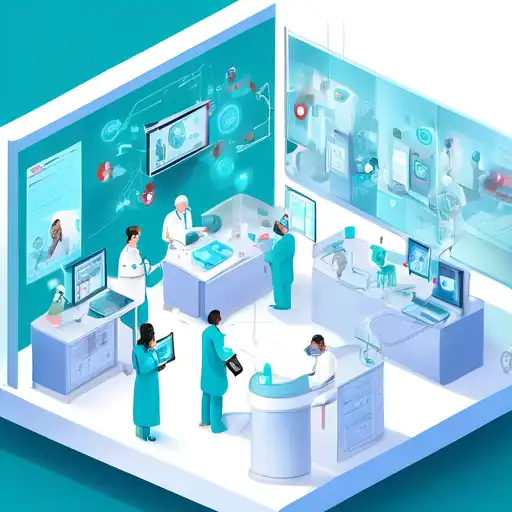The Revolutionary Role of IoT in Healthcare
The Internet of Things (IoT) is revolutionizing healthcare services by enabling smarter, more efficient, and personalized patient care. From remote monitoring to advanced diagnostics, IoT technologies are paving the way for a future where healthcare is more accessible and effective than ever before.
Enhancing Patient Care with Remote Monitoring
One of the most significant benefits of IoT in healthcare is the ability to monitor patients remotely. Wearable devices and smart sensors can track vital signs such as heart rate, blood pressure, and glucose levels in real-time, allowing healthcare providers to offer timely interventions. This not only improves patient outcomes but also reduces the need for hospital visits, making healthcare more convenient and cost-effective.
Improving Diagnostic Accuracy
IoT devices are also transforming diagnostics by providing healthcare professionals with access to a wealth of data. Smart diagnostic tools can analyze this data to detect abnormalities and predict potential health issues before they become serious. This leads to earlier interventions and better patient prognoses.
Streamlining Hospital Operations
Beyond patient care, IoT is optimizing hospital operations. Smart inventory systems can track medical supplies in real-time, ensuring that critical items are always in stock. Similarly, IoT-enabled equipment can predict maintenance needs, reducing downtime and improving service reliability.
Challenges and Considerations
Despite its benefits, the integration of IoT in healthcare comes with challenges. Data security and privacy are paramount, as sensitive patient information is transmitted across networks. Healthcare providers must implement robust cybersecurity measures to protect against breaches. Additionally, the high cost of IoT devices and the need for interoperability between systems are hurdles that need to be addressed.
The Future of IoT in Healthcare
The potential of IoT in healthcare is boundless. As technology advances, we can expect even more innovative applications, such as AI-driven diagnostics and personalized treatment plans based on real-time data. The key to unlocking this potential lies in overcoming current challenges and fostering collaboration between technologists and healthcare professionals.
For more insights into how technology is shaping the future of healthcare, explore our articles on Digital Health Trends and AI in Medicine.
In conclusion, IoT is setting a new standard for healthcare services, offering unprecedented opportunities to enhance patient care, improve diagnostics, and streamline operations. By addressing the challenges head-on, the healthcare industry can fully leverage IoT to deliver better, more efficient care to patients worldwide.
